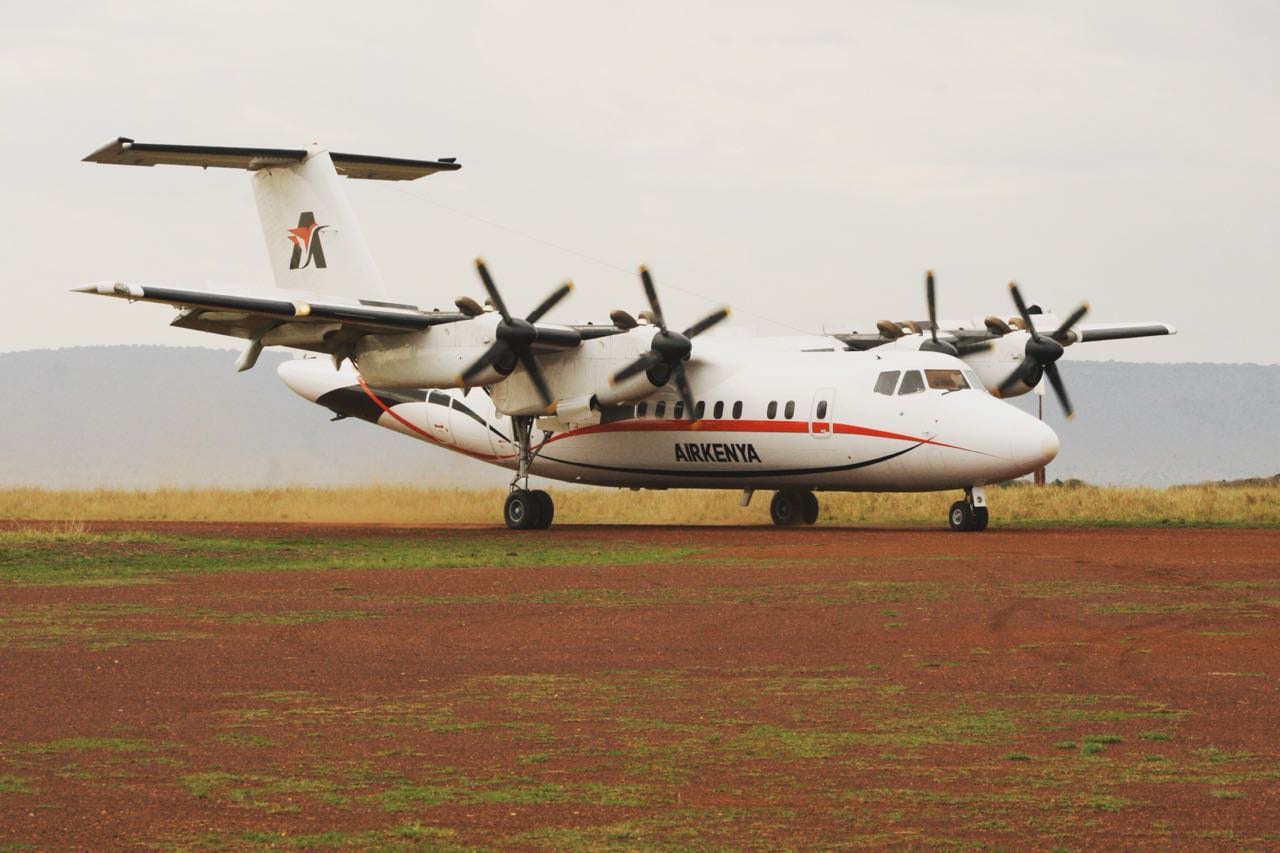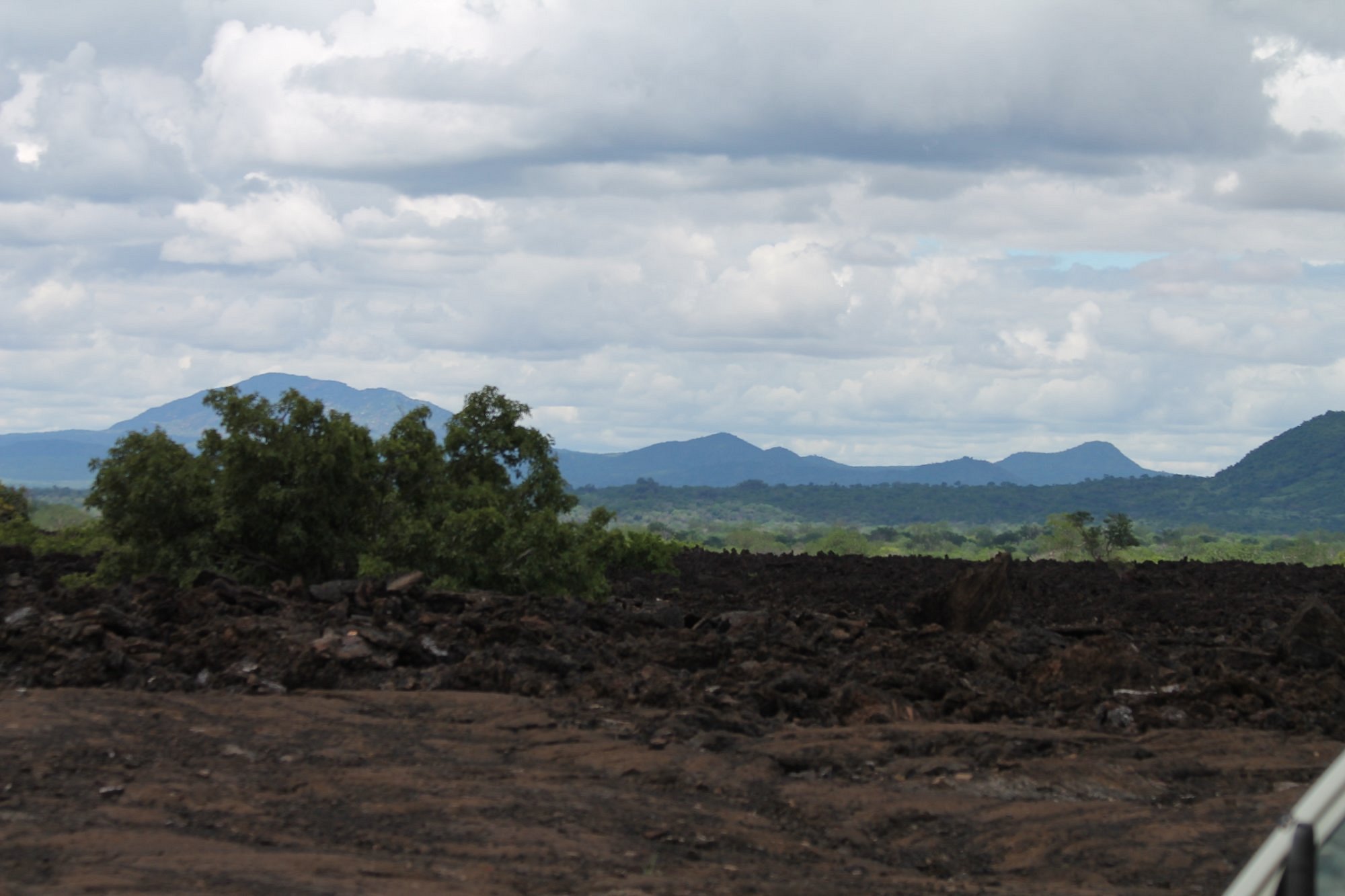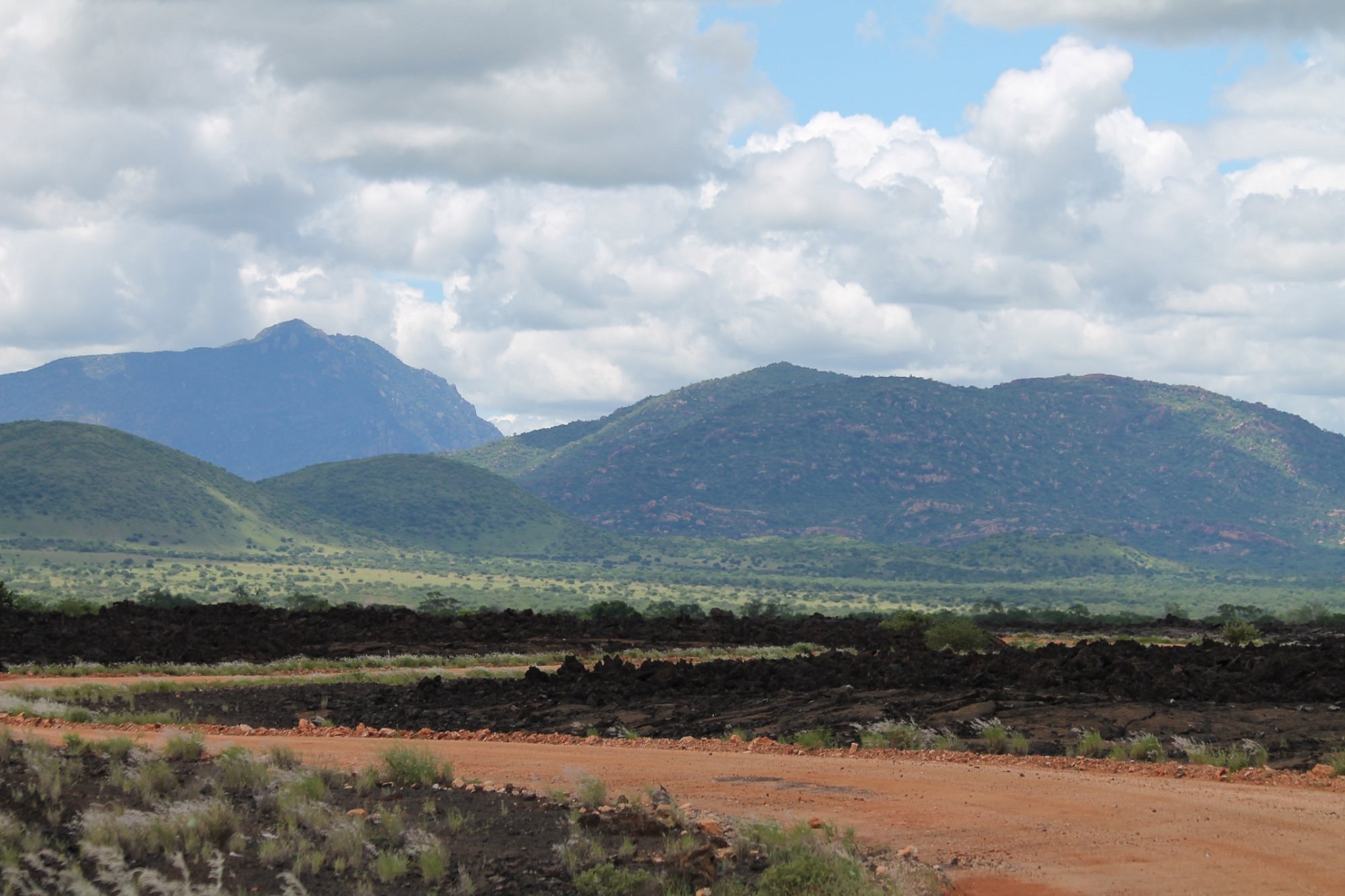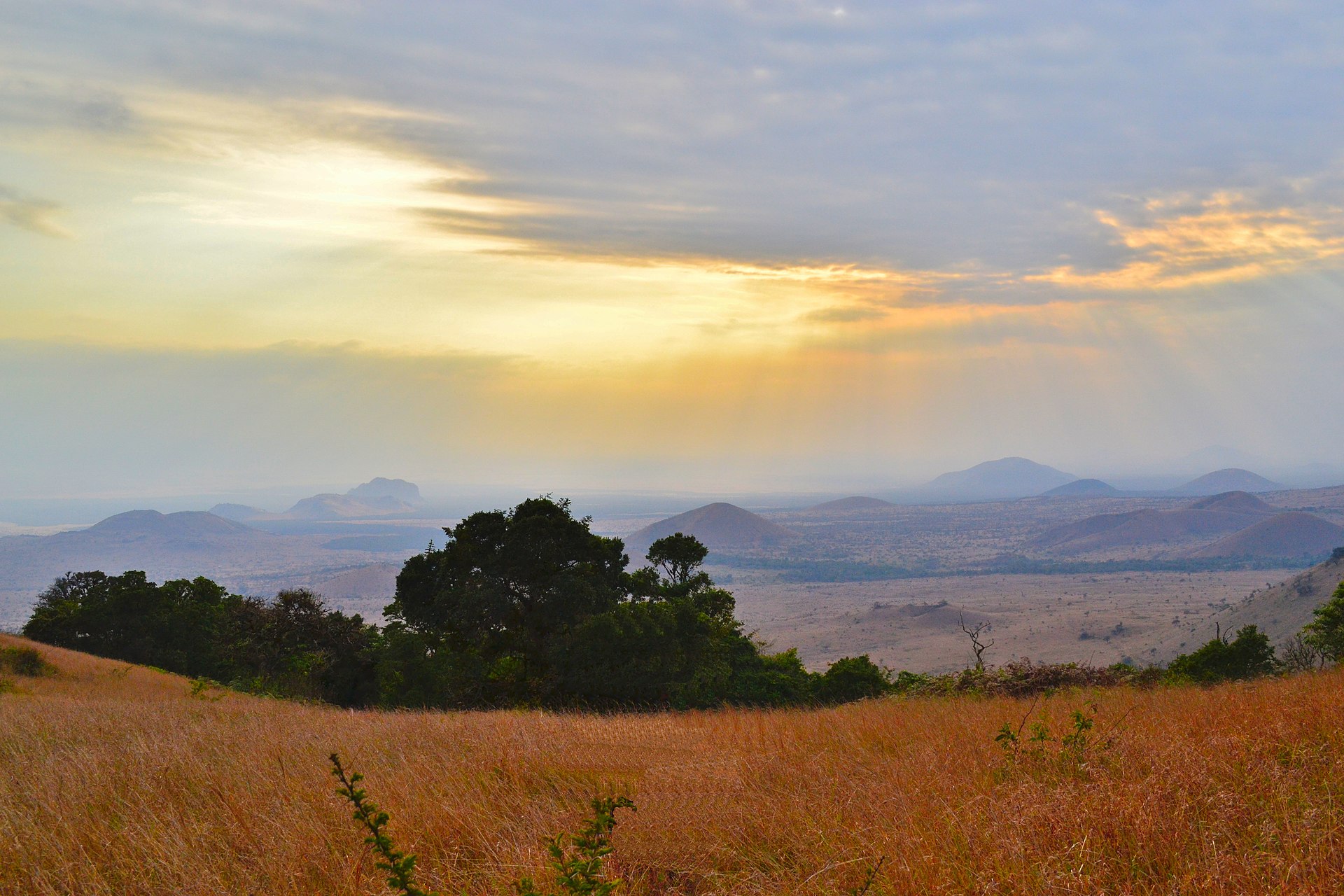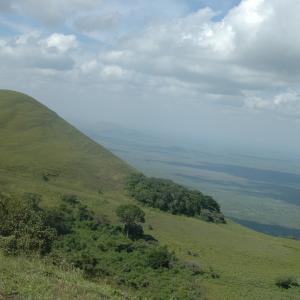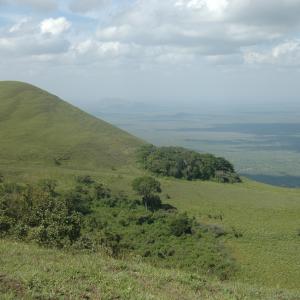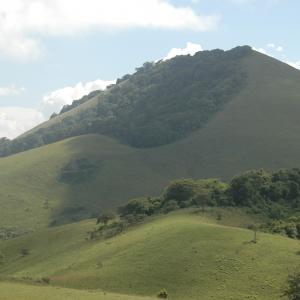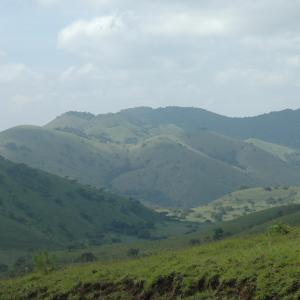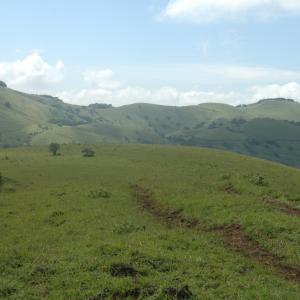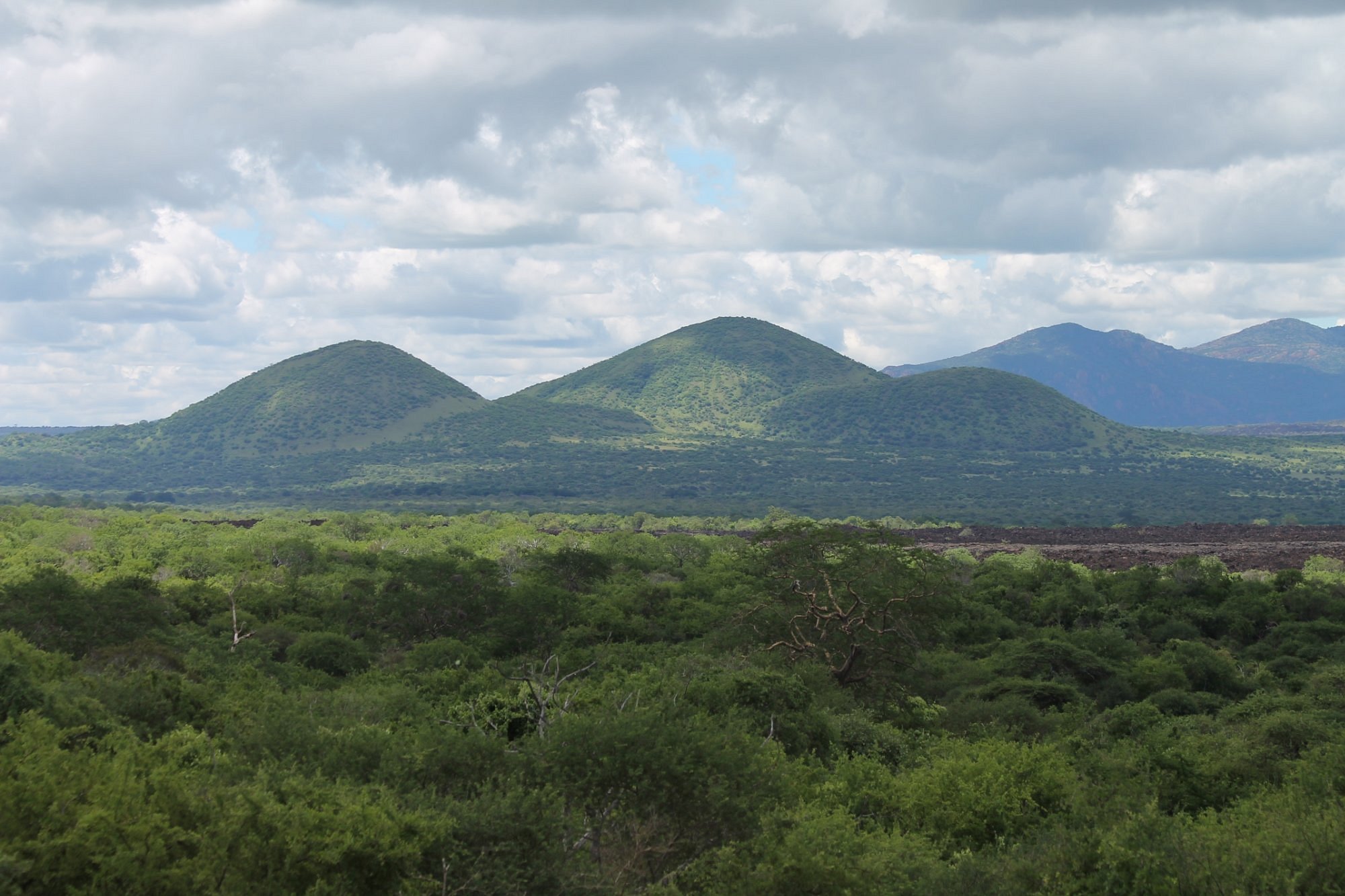
Chyulu Hills National Park
Overview
Chyulu Hills, located in Makueni County in southeastern Kenya, is a stunning mountain range that stretches approximately 100 kilometers in an elongated northeast–southwest direction. Renowned for its striking volcanic landscape, the range features the highest peak standing at 2,188 meters. The Chyulu Hills are celebrated for their dramatic terrain, formed by volcanic activity over the past few million years, resulting in an impressive array of lava flows and ash deposits. A highlight of the Chyulu Hills National Park is the Leviathan Cave, which spans about 11 kilometers, making it one of the longest caves in Africa. The rugged landscape and unique geological features of the Chyulu Hills offer visitors an exceptional opportunity for exploration, caving, and nature photography. The park's volcanic origins create a captivating backdrop for outdoor adventures and wildlife viewing, showcasing the park’s role as a key destination for those interested in Kenyan geology, natural history, and adventurous activities.
Park access
The park is approximately a 3 to 4-hour drive from Nairobi, Kenya's capital. The route involves traveling south-east via Mombasa Road towards Emali town. From Emali, you'll head south towards Kibwezi and then turn off towards the park.
If traveling from Mombasa, you would take the Mombasa-Nairobi Highway north-west towards Nairobi until you reach the turn-off towards Kibwezi. From there, you would proceed towards the park.
Chyulu Hills National Park shares a border with Tsavo West National Park. Visitors already in Tsavo West can access Chyulu Hills by road, although the journey may require a few hours of travel depending on the specific location within Tsavo West.
Park gates
The park is approximately a 3 to 4-hour drive from Nairobi, Kenya's capital. The route involves traveling south-east via Mombasa Road towards Emali town. From Emali, you'll head south towards Kibwezi and then turn off towards the park.
If traveling from Mombasa, you would take the Mombasa-Nairobi Highway north-west towards Nairobi until you reach the turn-off towards Kibwezi. From there, you would proceed towards the park.
Chyulu Hills National Park shares a border with Tsavo West National Park. Visitors already in Tsavo West can access Chyulu Hills by road, although the journey may require a few hours of travel depending on the specific location within Tsavo West.
Park attractions
Despite its relatively dry climate, Chyulu Hills is home to a diverse array of plant and animal species adapted to its volcanic terrain. The lower slopes of the hills are covered with acacia woodlands, while the higher elevations are characterized by grasslands and montane forests. The area is known for its unique vegetation, including ancient lava tubes and dense thickets of giant senecios.
Chyulu Hills is also rich in wildlife, with species such as elephants, buffaloes, giraffes, zebras, elands, and various antelope species roaming the hills. The area is particularly renowned for its large population of African wildlife, including predators such as lions, leopards, and cheetahs.
The Chyulu Hills hold cultural significance for the Maasai people, who traditionally inhabit the surrounding areas. The Maasai have a deep connection to the land and its wildlife, and their pastoralist lifestyle has coexisted with the natural environment for centuries.
Park wildlife
Despite its relatively dry climate, Chyulu Hills is home to a diverse array of plant and animal species adapted to its volcanic terrain. The lower slopes of the hills are covered with acacia woodlands, while the higher elevations are characterized by grasslands and montane forests. The area is known for its unique vegetation, including ancient lava tubes and dense thickets of giant senecios.
Chyulu Hills is also rich in wildlife, with species such as elephants, buffaloes, giraffes, zebras, elands, and various antelope species roaming the hills. The area is particularly renowned for its large population of African wildlife, including predators such as lions, leopards, and cheetahs.
Camping
There are several hiking trails throughout the hills, offering opportunities to explore the diverse landscapes and geological features of the area.
The dramatic landscapes and abundant wildlife of Chyulu Hills provide excellent opportunities for nature photographers to capture stunning images of the natural world.

